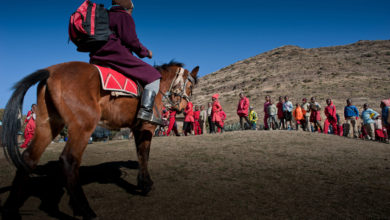U.S. expands counterterrorism assistance in Cambodia in spite of human rights concerns
The training has persisted despite concerns about the human rights record of Cambodia’s authoritarian ruler, former Khmer Rouge commander Hun Sen, who in the past has relied on his military to execute and intimidate political opponents.
President Obama, Defense Secretary Leon E. Panetta and Secretary of State Hillary Rodham Clinton are scheduled to make rare visits to Cambodia this week and next to attend a regional summit. Panetta, who is to arrive Friday, is slated to have a one-on-one meeting with Tea Banh, Cambodia’s defense minister.
Panetta’s aides said he would raise human rights concerns during the session.
The decision to embrace Cambodia has prompted criticism from human rights groups and several U.S. lawmakers, who accuse the Obama administration of pursuing closer military and diplomatic ties with countries in China’s back yard at the expense of democratic reforms.
“We’ve been yelling at the White House for a month and a half that [Obama] shouldn’t go because the human rights situation in Cambodia is so bad,” said John Sifton, the Asia advocacy director for Human Rights Watch. This week, the group issued a report documenting a long list of unsolved political killings in Cambodia.
The White House is also hearing complaints about Obama’s decision to become the first U.S. president to visit Burma, an isolated country controlled for decades by a repressive military. In recent months, Burmese rulers have allowed limited free elections and released political prisoners, but their commitment to democratic reform remains uncertain.
U.S. military leaders said they are eager to bolster relationships with countries across Asia, even those with checkered human rights records, but are careful to do so in a way that encourages reforms and does not ignore abuses.
Last month, Lt. Gen. Francis J. Wiercinski, the commander of U.S. Army forces in the Pacific, became the first American military officer in a quarter-century to visit Burma. He later said in an interview that the Pentagon would like to gradually build a relationship with the Burmese military, but only if it meets strict human rights criteria established by Congress, the White House and the State Department.
“They set the tone for what we can do and when we can do it,” Wiercinski said. “I follow the law.”
http://www.washingtonpost.com/world/national-security/us-expands-counterterrorism-assistance-in-cambodia-in-spite-of-human-rights-concerns/2012/11/15/f2df3de8-2e59-11e2-abff-7d780620a97a_story.html

